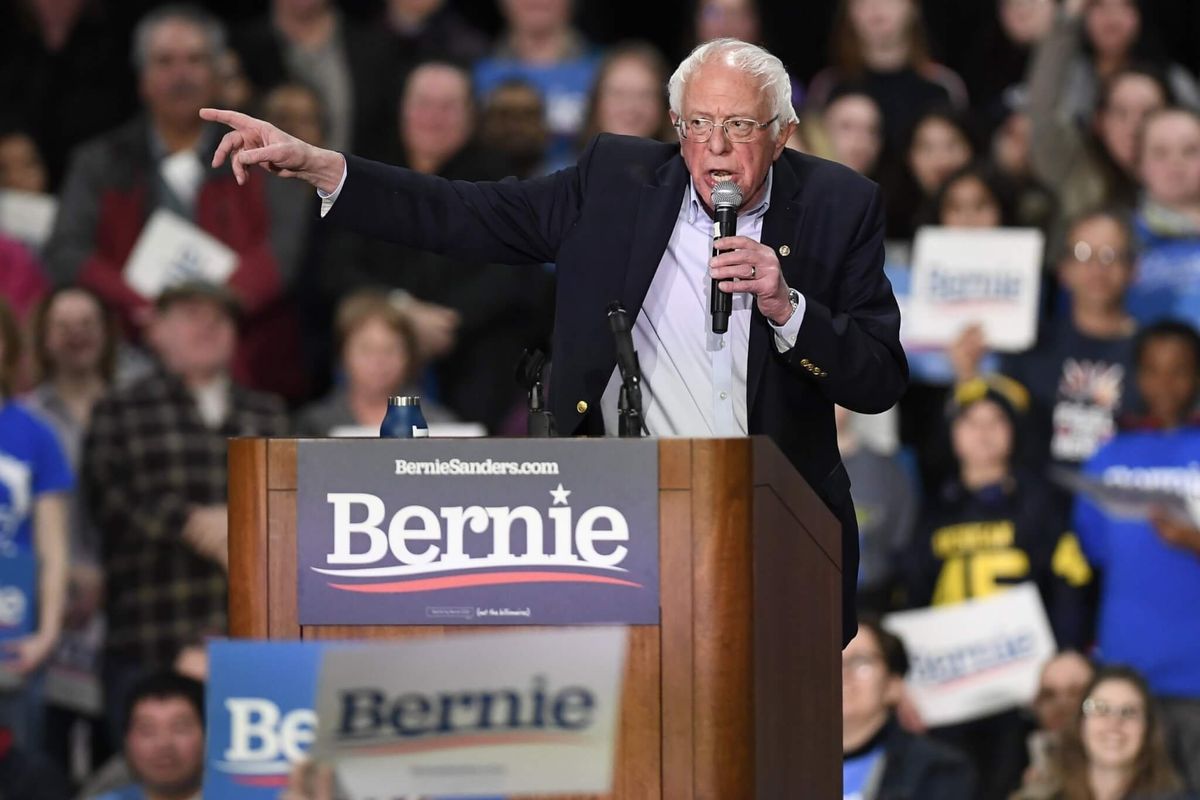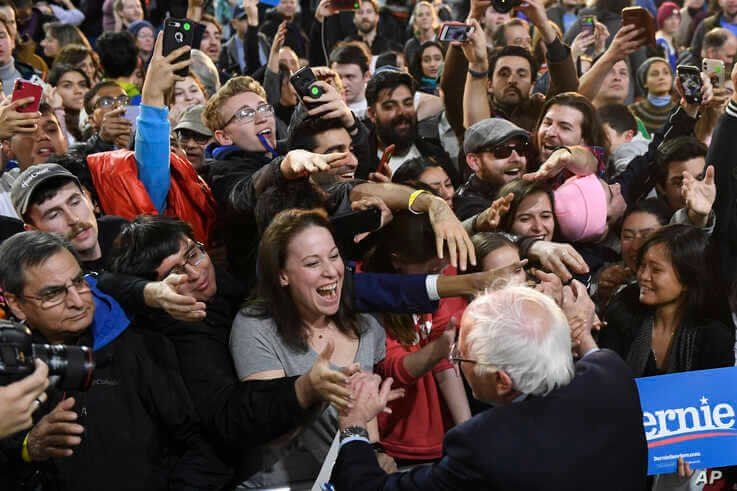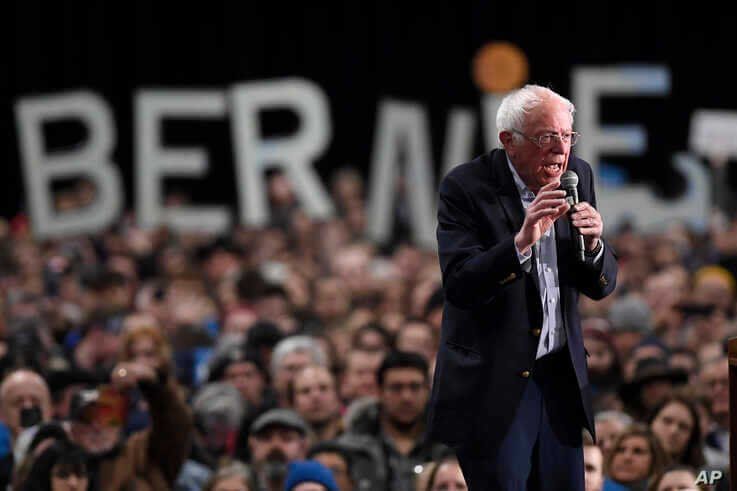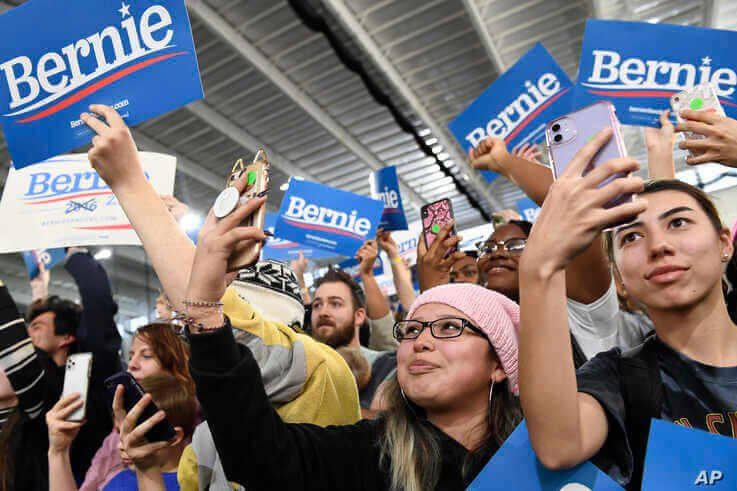
Sanders’ Praise of Castro Raises Foreign Policy Concerns
U.S. Senator Bernie Sanders’ foreign policy views are coming under increased scrutiny, in light of his past comments praising Castro’s communist Cuba.
The progressive senator from Vermont, who is the current Democratic front runner in the race to win the party nomination for president, was recently confronted by positive remarks he made years ago about improved health care and education in Cuba under Communist leader Fidel Castro, during a “60 Minutes” television interview on CBS.
Cuban American leaders from both political parties, including Senator Marco Rubio (Republican-Florida) and Senator Bob Menendez (Democrat-New Jersey) have criticized Sanders for appearing to ignore or condone widespread repression in Cuba, where, according to Human Right Watch, thousands have been “incarcerated in abysmal prisons”, and “entire generations” have been denied basic political freedoms.
At last Tuesday’s Democratic Party debate in South Carolina, Sanders emphasized his opposition to “authoritarianism all over the world,” when questioned about his past praise of communist Cuba, but defended his views, saying they are no different than those of former president Barack Obama, who restored full U.S. diplomatic relations with Cuba in 2014.
"Occasionally, it might be a good idea, to be honest about American foreign policy,” Sanders said, adding that the U.S. should acknowledge both the constructive progress made by authoritarian adversaries, as well as America's past role in overthrowing governments in Iran, Guatemala and Chile.

Radical past
Sanders’ polarizing foreign policy views along with his socialist domestic agenda, is raising concerns about both the viability of his candidacy and his ability to govern, if elected.
"If it's humanly possible for the country to become more polarized than it is right now, a Sanders presidency will achieve it,” said David Barker, a professor of politics at American University in Washington.
Many moderates warn that his proposed policies are too extreme, and could bring about a Republican landslide, ensuring both U.S. President Donald Trump’s reelection and possibly losing Democratic control of the House of Representatives, if he were to become the Democratic nominee.
Sanders has a long history of criticizing U.S. foreign policy while praising communist adversaries. In the 1980s he aligned with the Socialist Workers Party that was calling for “solidarity” with Iran while it was holding American hostages, and for communist Cuba. He also praised the investment in culture and mass transit in the Soviet Union while visiting the country in 1998.
As a candidate for president, Sanders' foreign policy positions reflect his long standing views that American foreign interventions from Vietnam to Afghanistan, Iraq, and Syria, have not succeeded to deter foreign aggression, to support democracy abroad, and to root out the threat of terrorism.“
I think the last 20 years has shown that we need to be, I think, a bit more humble about our ability to produce certain outcomes in other countries,” said Matthew Duss, a foreign policy adviser to the Senator Sanders campaign at a conference in Washington last week, organized by the Foreign Policy news organization and Quincy Institute Forum public policy research group.

Trump comparison
Sanders shares President Trump’s view that the U.S. should pull back from “endless” foreign military engagements in Afghanistan and Syria, but differs on what he sees as Trump’s impulsive implementation that left Kurdish allies in Syria abandoned.
Sanders instead would implement an incremental strategy of restraint, one that critics say, would act more aggressively to reduce the U.S. military capabilities than Trump, by significantly cutting the defense budget, and rejecting the use of almost all military force, except to prevent a direct attack on Americans or to support an ally like Taiwan if China were to invade.“
Of course we should be more restrained, until we shouldn't,” said retired Army General David Petraeus, a former commander of U.S. forces in Iraq and Afghanistan at the foreign policy forum. “How do you deter actions by an adversary or a potential adversary? You do it by showing that you have the capability and also the will.”
Along with many in the foreign policy establishment, Sanders has been critical of Trump’s unilateral approach to security and trade, and supports reestablishing close working relationships with allies and international institutions like the United Nations.
Sanders would also rejoin the Iran nuclear deal negotiated by President Barack Obama that eased sanctions on Tehran for a freeze on its nuclear development program. President Trump pulled out of the agreement and increased sanctions to force Iran to end its ballistic missile program and curtail support for militant groups in the region.
However, Sanders is also skeptical about the effectiveness of sanctions to force compliance. Sanctions advocates are often “very hawkish factions that really want to prevent diplomacy from taking place,” said Sanders’ foreign policy adviser Duss. He added that economic trade restrictions end up “hurting populations” and “empowering the very people we supposedly want to impact.”
By taking the military option off the table and using sanctions sparingly, opponents question the effectiveness of Sanders’ diplomatic viewpoint.

In January, the Trump campaign accused Sanders of “pushing a naive, dangerous policy of appeasement toward Iran,” after Sanders criticized the U.S. drone strike killing Iranian General Qasem Soleimani, that he said, risked a “dangerous escalation” into a potential military conflict.
The progressive foreign policy that Sanders espouses, prioritizes supporting democracy versus autocracy, opposing efforts by Russia and China to undermine elected governments around the world while supporting human rights and inequality for working people.
However, this sets up a “fundamental contradiction,” wrote Thomas Wright, a foreign policy analyst with the Brookings Institution, on his policy blog, that would force Sanders to “choose between waging the struggle against autocrats and cutting the defense budget and de-emphasizing military power.”
 California: The Big Super Tuesday Prize for Democratic Presidential CandidatesNext PostDiverse California Holds Big Super Tuesday Prize for Democratic Presidential Candidates
California: The Big Super Tuesday Prize for Democratic Presidential CandidatesNext PostDiverse California Holds Big Super Tuesday Prize for Democratic Presidential Candidates





